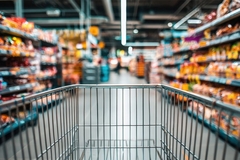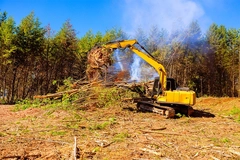
- Industry news
Industry news
- Category news
Category news
- Reports
- Key trends
- Multimedia
- Journal
- Events
- Suppliers
- Home
- Industry news
Industry news
- Category news
Category news
- Reports
- Key trends
- Multimedia
- Events
- Suppliers
Novozymes Launches New Enzyme for Sustainable Brewing

Because the beer tastes good, reducing CO2 or the price of the final beer were much stronger drivers of preference than whether the beer was made from malted or unmalted barley. Consumers expressed a strong interest and an openness to try the new, 100% barley-based beer.

14 Sep 2009 --- Create a great-tasting beer and save on your CO2 emissions. That is the result of a new enzyme enabling brewers to produce beer based on 100% unmalted barley. Consumers like both the taste and the climate-friendly concept. According to Novozymes, the new enzyme, Novozymes Ondea Pro, will bring about a rethink and revolution in beer production all over the world.
“Ondea Pro enables brewers to create great-tasting beer while optimizing raw material utilization and reducing their carbon footprint – all with one simple process. It’s a real game changer for the brewing industry,” says Patrick Patterson, Novozymes' Marketing Director for Beverages.
Patrick Patterson explains that several trends have shaped recent developments in the brewing industry, where brewers are trying to optimize their raw materials and still make the same high-quality beer. “With the long-term trend toward industrialization of the brewing process and ever-rising raw material prices, brewers are seeking effective solutions that do not jeopardize the consumer’s experience,” he says.
The brewing industry is extremely consumer focused and built on strong traditions. Novozymes therefore conducted consumer tests in both Germany and Denmark, and the results were very clear: Because the beer tastes good, reducing CO2 or the price of the final beer were much stronger drivers of preference than whether the beer was made from malted or unmalted barley. Consumers expressed a strong interest and an openness to try the new, 100% barley-based beer.
Danish brewery Harboe will be one of the first companies to use the new enzyme in its production, launching a new beer based on sustainability claims. The new sustainable beer from Harboe will be ready for sale in week 41 and is called Clim8 Beer.
“We would like to take responsibility for challenges in relation to the climate and CO2 emissions. Clim8 Beer is a result of this thinking and a two-year collaboration with Novozymes,” says Bernard Giese, CEO of Harboe.
Malting barley consists of soaking the grain in water to allow the grain to germinate, then drying the grain, which utilizes water and energy.
Avoiding this step has a significant impact on reducing CO2 emissions. With consumer concern for environmental issues rising, it was an obvious move for Novozymes to look for a more sustainable solution.
Even when considering a very efficient malting process, brewing with unmalted barley reduced the overall carbon footprint of beer production by 8%.
Patrick Patterson continues: “The benefits are not limited to CO2 reduction. We also documented a 7% reduction in the amount of barley required to produce the same volume of beer, thereby improving land utilization and operating profit. With every 10% of current global beer production there is a potential to save more than 350,000 tons of CO2. This is roughly equivalent to taking 85,000 cars off the road.”
And what does this mean for the brewing industry? “Our customers have the flexibility to blend this beer into their existing brands or offer consumers new brands. In either case, consumers will enjoy the experience of sharing a beer with their friends secure in the knowledge that they have chosen a product from a brewery that is pursuing sustainable solutions,” concludes Patrick Patterson.










